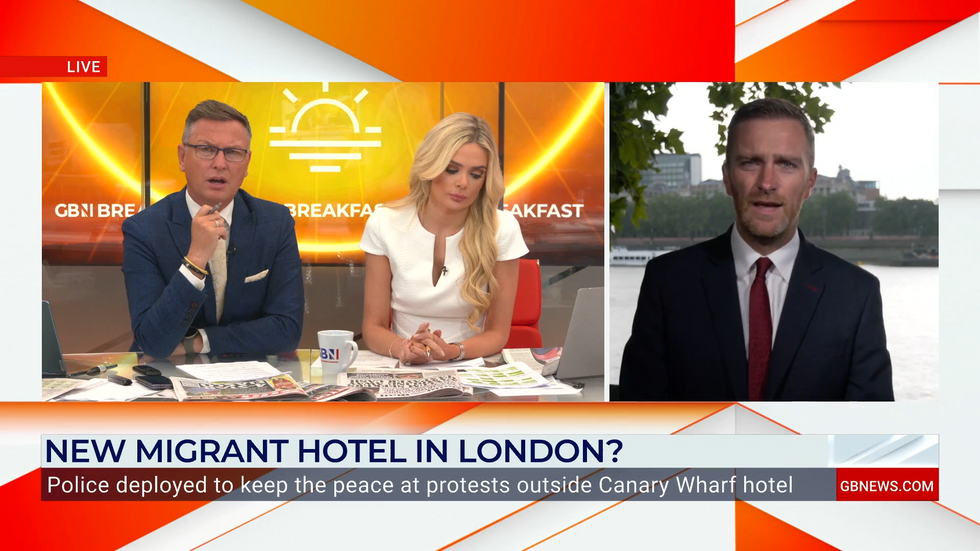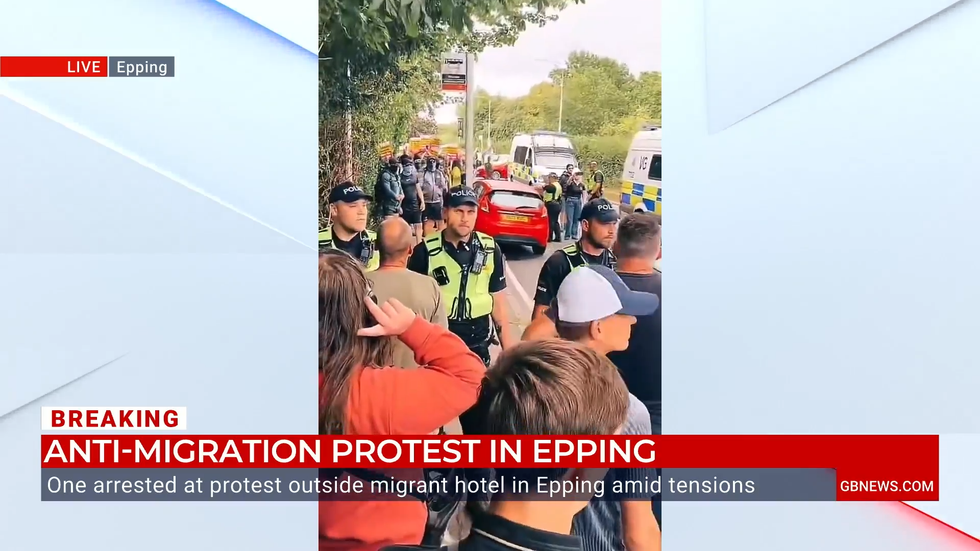



Conservative MP Matt Vickers has issued stark warnings about escalating migration, telling GB News that it has been "on steroids" since Labour took office.
His comments come after Reform UK leader Nigel Farage cautioned about the possibility of a summer "of unrest," as widespread demonstrations break out across the country.
The Shadow Minister for Crime, Policing and Fire told GB News that official workforce statistics revealed police officer numbers have fallen by 1,316 in the past year and attributed this decline directly to National Insurance rises imposed in the October Budget, claiming the Government is "literally taxing the police off our streets".
Speaking to GB News, he explained: "I think one of the reasons they won’t be prepared is because, under the last Government, we had record numbers of police on our streets.

GB NEWS
|Matt Vickers said the crisis is "on steroids"
"We said this would happen when the Budget was released, and when our police forces were slammed with that National Insurance increase.
"They’re literally taxing the police off our streets. That has real consequences in all sorts of situations, particularly if what they’re predicting for this summer actually happens."
GB News host Stephen Dixon questioned the Conservative MP: "You’re quite right, when you left office police numbers were at their highest, but that was after years of cuts. You brought the numbers back up, yes, but you slashed them in the first place."
Vickers responded: "They were higher than ever. We put 20,000 more police on the streets. That’s literally the highest number ever. We don’t want to be going backwards on policing; we want to go forwards. We should be adding more police.
"But this Government, we told them what would happen, and now we’re already down 1,316 officers. That’s fewer police on the streets in communities like mine and yours. That has real consequences, especially given what they’re saying might happen this summer."
Stephen Dixon asked: "What’s your reaction to what we’ve seen in Epping? The scenes in Canary Wharf? Nigel Farage warning that there’s the potential for a summer of unrest?
Matt Vickers: "I think there are two sides to this. On one hand, you’ve got individuals turning up from here, there and everywhere with extreme views just coming in to cause trouble.
"Those people need to be treated very differently from real people, ordinary people, who are concerned about what’s going on in their communities and who have the right to protest.
"You’ve got to separate those two groups clearly. And there have to be real consequences and sanctions for people who bring violence into those communities.
"Because the reality is, the people who lose out are the locals. When violence erupts people having punch-ups in the street and creating chaos the consequences fall on the community. Elderly residents don’t go out at night because they’re scared.
"Businesses shut early, take a financial hit, and are afraid to open. Staff can’t get to work. There are real consequences to this sort of violence on our streets.
"We don’t want to see that, but at the same time, people should have the right to protest about what is a terrible situation. And some of the incidents being reported involving migrants are, frankly, appalling."
He added: “The situation was very bad, unacceptably bad, and now it’s on steroids. He’s rolled out the red carpet.
"He’s said to people he has changed the law in the House of Commons to say that if you arrive in this country illegally, you can become a British citizen. That’s appalling. That’s atrocious."
 GB NEWS | Protests broke out in Epping
GB NEWS | Protests broke out in Epping
Recent demonstrations outside an asylum accommodation facility in Epping have prompted concerns about escalating tensions.
Violent confrontations occurred at the taxpayer-funded hotel, with a non-violent protest also reported in Canary Wharf.
Prime Minister Keir Starmer responded to the Epping incidents by emphasising the importance of repairing Britain's "social fabric".
The Labour leader stated there could be "never ever any excuse for rioting" whilst acknowledging the need to address underlying community concerns.
These developments follow last year's widespread disorder after the Southport tragedy, when three young girls were killed, sparking riots across multiple cities.
